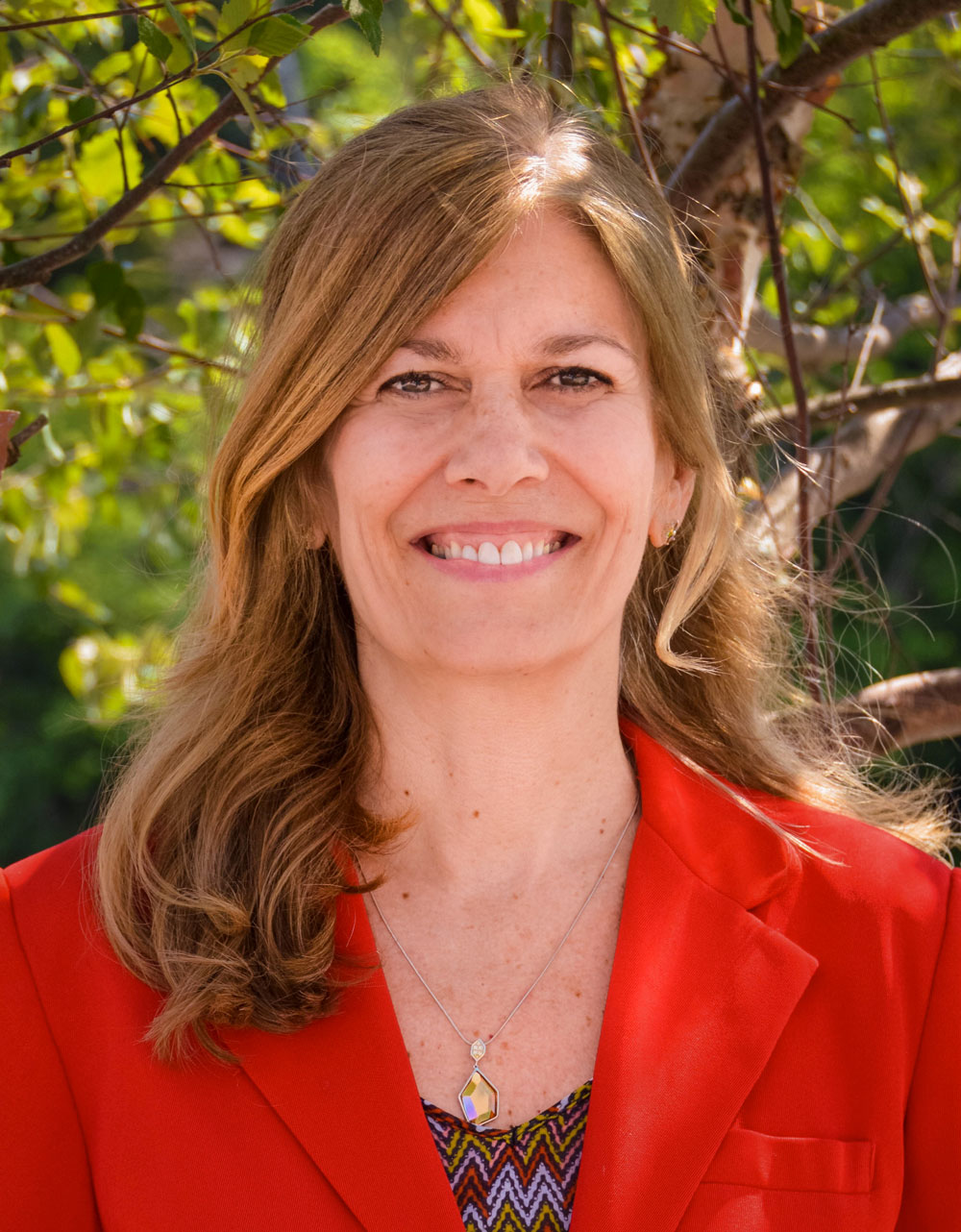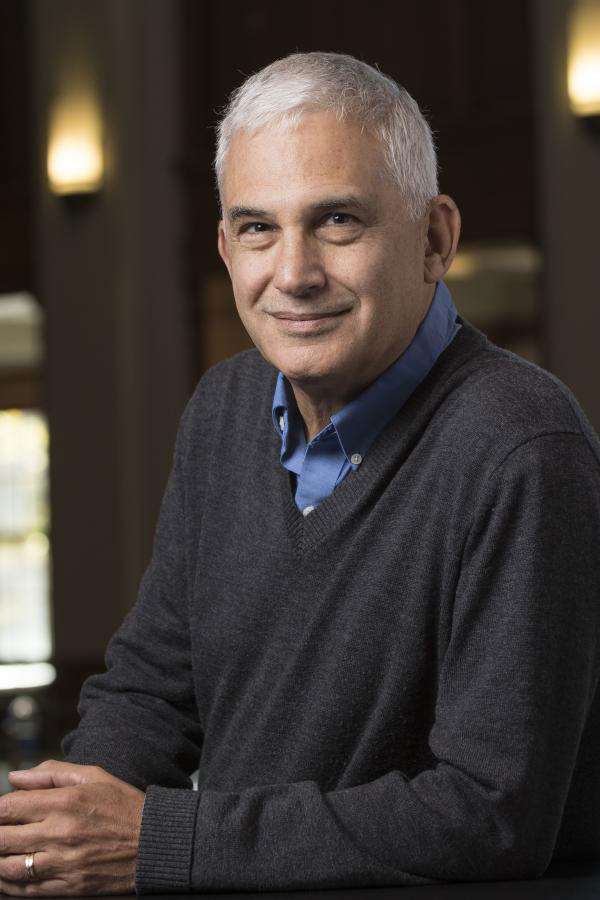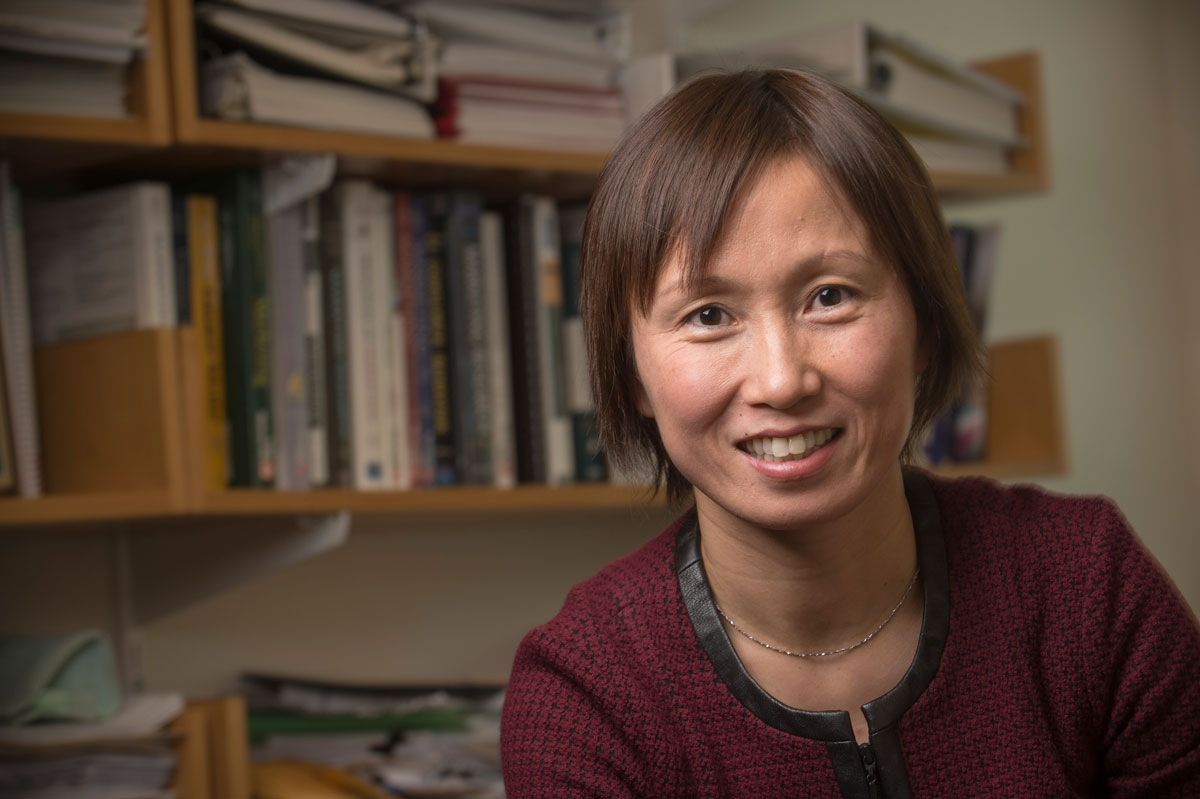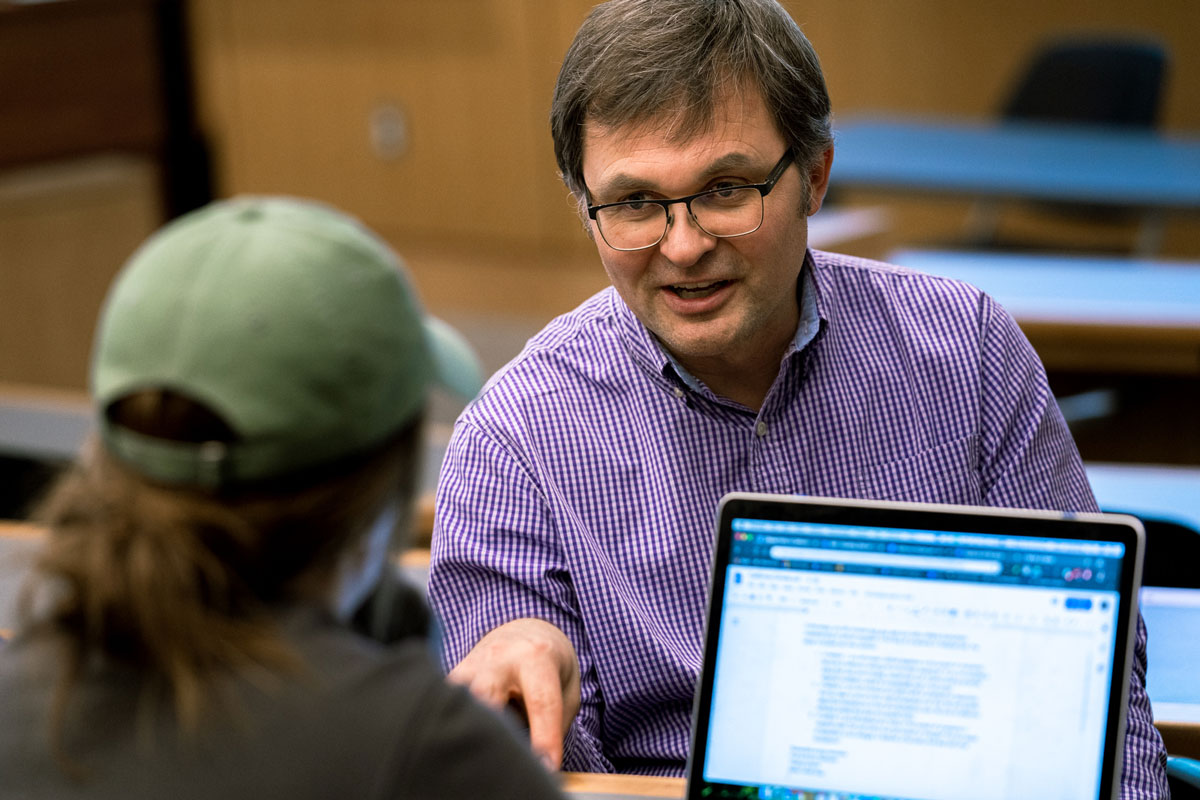
ducated as an engineer and trained as philosopher, Betty Woodman spent many years in the corporate sector where she rose to the level of senior leadership and witnessed firsthand how a company’s long-term success could hinge on the way people treated one another.
“People tend to restrict business ethics to issues of compliance and legal fair dealing,” said Woodman. “I’ve chosen to take a systems approach in which ethics serves the health and wellbeing of the whole. Harm one part, and the whole suffers, hurting the other parts as well.”
As a former sales executive, Woodman saw how corporate infighting could hurt the perpetrators as much as the victims by undermining creativity, innovation, and courage — qualities that characterize successful companies. As a doctoral student at Emory University, she drew on this experience to develop an ethical category she calls “a sustainability mindset.”
“I see sustainability as an ethical category that encourages a multiplicity of voices, emotional as well as strategic intelligence, female and male, all bound together in an atmosphere of trust,” Woodman explained. “Whether we’re talking about relationships among leaders and their teams, companies and their suppliers, or brands and their customers, lose that trust and nobody benefits.”
An example students learn about is how 3M’s culture of risk taking turned one product designer’s failure to make a strong adhesive glue into another’s invention of one of the biggest office product sellers of all time: Post-It Notes.
They also learn about “shared value,” a form corporate social responsibility (CSR) that involves using business to produce social good and a healthy bottom line. Understanding shared value forces students to confront the gray areas of ethics where financial and humanistic “bottom lines” that formerly competed with each other can come into harmony.
Explained Woodman, “When they learn about Walmart as a corporate leader in the use of solar power, they think a little differently about the chain. Yes, the company adopted solar in order to save on energy costs and boost its bottom line, but it also provided much-needed leadership in reducing its carbon footprint. Walmart isn’t a perfect organization, that’s for sure, but I want students to see how applying ethical behavior can produce the win-win we’re all after.”

ichael Swack describes himself as “the son of an activist mom who grew up in Northeast Ohio.” He traces his own activist roots to his undergraduate years at the University of Wisconsin, where, as a resident of cooperative housing when his building was put up for sale, Swack devised a scheme to buy the building, only to be told by his attorney that he was likely committing securities fraud.
The experience led him to pursue graduate work in finance, followed by a career creating programs and financial instruments to enable low- and medium-income families to find housing and improve their quality of life. Swack’s particular contributions would focus on how community development financial institutions can improve operations, fundraising, and capitalization outside of mainstream banking.
Swack’s career has gathered a burnish of legend about it. After contributing to a book on community land trusts in 1982, for example, he and co-author John Davis got a call from the newly elected mayor of Burlington, Vermont, Bernie Sanders. Sanders was interested in public land trusts, the authors met with him, and today Burlington boasts the nation’s largest and most successful community land trust.
Or, take the time in 1983 when Swack was introduced to a couple of “scruffy looking” friends who had a great business idea but no business plan. Swack volunteered to develop and write a plan for Gary Hirschberg and Samuel Kaymen — who later named their company Stonyfield Farm Yogurt.
Eades might have added “and a mentor’s love of inspiring others.” Over a 39-year tenure in higher education (12 of those with Paul College and the Carsey School), Swack figures he’s taught some 1,000 students. At Paul, Swack currently teaches courses in Microfinance and Social Economy. He will soon launch a new experiential learning-based course on community finance within the college’s Business in Practice Program.
“I enjoy teaching both undergraduate and graduate students,” he said. “Many end up working in a similar field. I am still in touch with students I taught when I first started over 30 years ago.”
On October 22, 2019, Swack received the 2019 Net Gramlich Lifetime Achievement Award for Responsible Finance. The Award is the highest individual honor available in the field of community development, a field that Swack helped define. And he shows no sign of slowing down – at present, his many projects include collaborating with a national association of credit unions to put together a training program and financing platform that will allow the credit unions to underwrite solar lending for their members, many of whom would otherwise lack the resources to invest in clean energy.

hen Shuili Du was a doctoral student at Boston University, the academic field of marketing still focused on the marketing mix (i.e., product, price, promotion and channel management/retailing) and less on the company behind the marketing activities. Then, in one of her doctoral courses, marketing professor C.B. Bhattacharya shared his viewpoint of the importance of companies being good corporate citizens. This piqued her interest, and Bhattacharya wound up mentoring Du in the budding field of corporate social responsibility (CSR).
The idea of using business to do good wasn’t exactly new, but it hadn’t attracted serious academic research until the early 2000s, when Du came of professional age.
Du drew inspirations for her research from daily observations and interactions with fellow consumers. For example, en route to her native China in the early 2000s, during her visa interview with an American consulate officer in Shanghai, she talked about her research on CSR.
“I used Stonyfield Farm yogurt as an example of socially responsible brand,” Du recalled. “The consulate officer got excited about Stonyfield. It turned out he was a big admirer of Stonyfield’s commitment to sustainability. He said he not only liked the product, but he loved the brand.” This incident, said Du, inspired her to conduct a study on how CSR cultivates an emotional bond with consumers and strengthens brand loyalty.
As a teacher of undergraduate and graduate students, Du strives to bring the practical applications of marketing theories into the classroom. She encourages her MBA students to incorporate issues they’re facing in their current jobs into class projects. She also enjoys being more expansive with her undergraduate students, who often arrive on campus with little understanding of marketing’s broad applications.
“Before taking my principles of marketing class, students think marketing is sales and advertising,” Du said. “But they learn that marketing touches everything from consumer behavior, marketing research, and segmenting the market, to brand positioning, new product development, pricing, and the commonly understood communication side of the subject.”
For Du, business is about creating value for stakeholders, and if running a company more sustainably holds value for them, she wants students to understand that the marketer’s job is “to build it into the company – not as an overlay but as a core component of the brand.”

hen Robert Mohr was in graduate school, his advisor introduced him to a controversial paper written by the influential economist Michael Porter. Porter argued that government environmental regulations such as carbon taxes, recycling, and waste mitigation could lower costs and improve businesses bottom lines. Porter also suggested regulations might trigger innovation.
Porter’s thesis brought down a hornet’s nest of criticism from economists who dismissed the idea that companies needed any government intrusion into markets. But Mohr, a hungry graduate student eager to make a contribution to his chosen field, disagreed with the critics. He wrote a doctoral dissertation defending Porter’s ideas, and further suggesting that regulations might help companies overcome fears of having their ideas stolen by competitors.
Mohr’s thesis earned him a Ph.D. in environmental economics, lifted his recognition by professionals in his field, and landed him a tenure-track position in the economics department at Paul College.
Today, Mohr wants his graduate and undergraduate students alike to experience the same thrill of mastering the tools of economics. He often shares this story with them.
“I want to convey that the real reward comes when you make the transition from acquiring new knowledge to creating new knowledge,” Mohr said. “In larger economics departments, this is often where students fall through the cracks. I explain that I was once where they are now. And here’s how I made my mark. Now they can do the same.”
Much like the climate itself, the course, which enrolls many students in the Sustainability Dual Major, has changed a lot over the years. “In the beginning I spent more time establishing the scientific argument for the existence of climate change,” said Mohr. “Now we take its existence as a fact and focus on its financial impact. That includes forecasting and valuing investments in processes like reducing greenhouse emissions that may not yield ‘returns’ for decades but are necessary for human survival.”
Mohr has also applied his economic expertise to addressing critical environmental issues in New Hampshire. Mohr collaborated on a 2018 survey of New Hampshire citizens to determine how much they would be willing to pay to mitigate cancer-causing arsenic in their drinking water. He and his co-authors’ findings, published in Environmental Management, ultimately helped the state’s Department of Environmental Services change New Hampshire policy to tighten limits.
“As an economist, it’s rewarding to be able to join forces with your colleagues and contribute to addressing a local problem,” said Mohr.